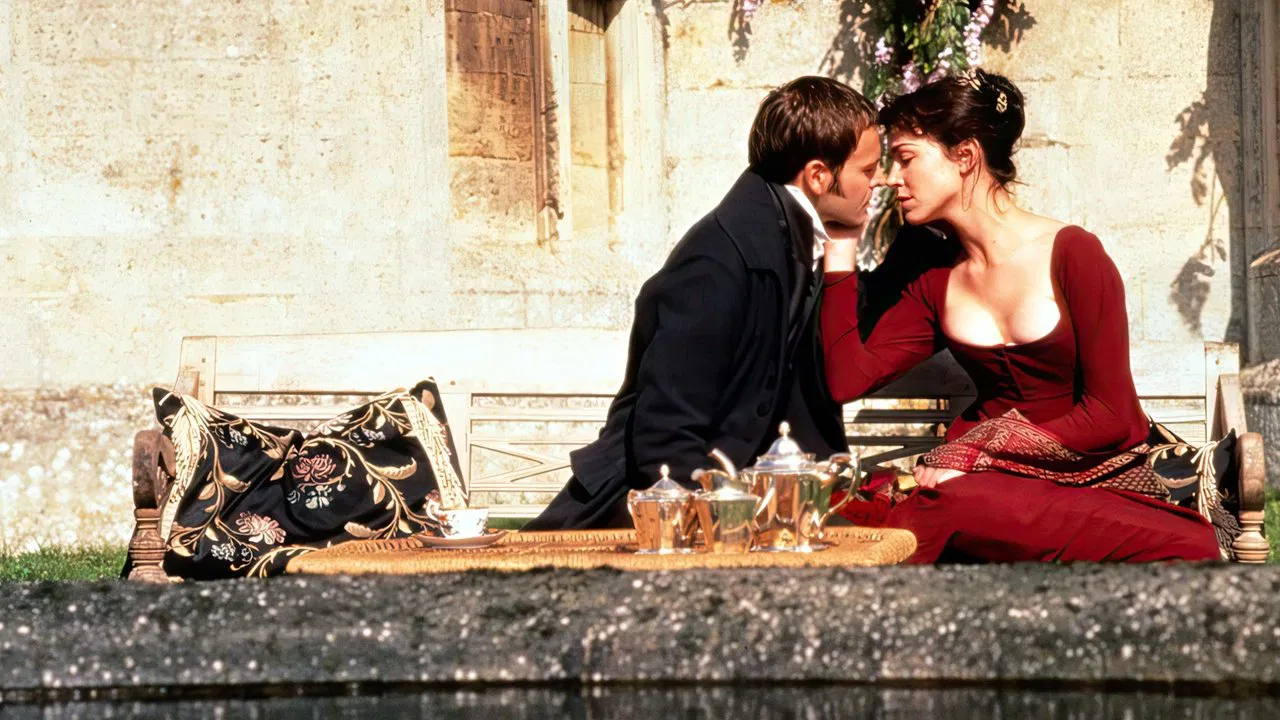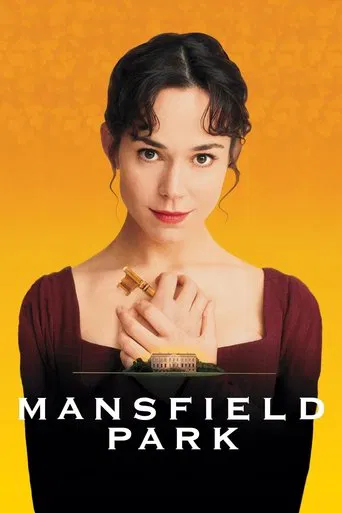

What makes it different from others?
... View MoreSERIOUSLY. This is what the crap Hollywood still puts out?
... View MoreHow sad is this?
... View MoreThe film never slows down or bores, plunging from one harrowing sequence to the next.
... View MoreEngland, 1806. The photography and production design are exquisite. What a far cry this is from Hollywood's remakes of the classics in the 30s and 40s, with everything shot in black and white on a studio sound stage. Majestic landscapes in full bloom. And what must it be like to live in Cornwall and bear the brunt of all those westerly gales? Mendocino County write large.The performances are top notch as well. I don't know how closely the characters resemble Jane Austen's, never having read the novel, but independent of her text they can stand on their own two feet. And not just the performances but the casting. As Fanny Price, Frances O'Connor looks and acts like a properly British Jessica Harper. Embeth Davidz is paralyzing cool and pragmatic. I can't figure out just who plays Fanny's mother in Portsmouth but she's emblematic of the poor around the world, pinched and weathered. I had no idea that Harold Pinter was an actor as well as a writer.I can't say that the plot is gripping. Well, I guess it is, in a way. The problem is that it's so similar to other lavish soap operas in which everybody is in love with the wrong person for reasons of affection or social status -- vide, "Far From the Madding Crowd," "Gone With The Wind," and on and on. Dickens worked such themes into his novels as well, but he added a dash of social commentary, of engagement with the world outside the mansion. And he played recklessly with the English language: "Oh, JOY! What a reversal of desolation." Austen seems sedate by comparison.Patricia Rozema is a winning director, hitting all the right notes. No fancy directorial fireworks, no razzle dazzle, and the stylistic touches come at just the right places, as in the epilogue, in which characters freeze into tableaux just long enough for a summary of their fates.
... View MoreFanny Price (Frances O'Connor) comes from a poor family. Her mother married for love. She was sent to live with her aunt's family the Bertrams in Mansfield Park at the age of 10. She's looked down upon by everybody except the son Edmund (Jonny Lee Miller). Sir Thomas travels to their Antigua plantation with the oldest son Tom. The rest of the family is joined in Mansfield by Henry (Alessandro Nivola) and his sister Mary Crawford (Embeth Davidtz). Edmund becomes infatuated with Mary. The Bertram sisters Maria and Julia both vie for Henry despite the fact that Maria is already engaged to the dull Rushworth.This movie takes slavery on as a central theme. Also Fanny Price is a thoroughly modern woman as well-read head-strong thinking woman. Her abolitionist views are ahead of her times. This adds something much more than the usual Jane Austen interior romanticism. I'm sure some Austen fans hate a lot of the changes but it works for me. It adds a higher moral idealism to the romance.
... View MoreThis 1999 adaptation of Mansfield Park is attractively filmed and has a good cast. It's interesting to see how so many of the cast members have become successful on television since: James Purefoy in the Following, Johnny Lee Miller in Elementary and High Bonneville in Downton Abbey. Francis O'Connor isn't as pretty an actress as I would have liked to fill the role but she acts well.For modern audiences, Mansfield Park will never be widely embraced as Sense and Sensibility, and Pride and Prejudice because one has to accept a great love between first cousins. It's a shame this dated aspect stops it from being more well loved because the story is interesting and deals with adultery and divorce which is quite daring for the time. Also the Crawfords are among Austen characters some of the more interesting flawed characters. They are well played by Embeth Davitz and Alessandro Nivola.There are some differences from the novel that have been criticised in this version. Some relocations of events and reducing of characters I understand is necessary for brevity. The slavery issue is played up to make things more modern.Overall it's still a well made and attractive adaptation that doesn't have that cheap television feel of some other productions. Worth a watch.
... View MoreMansfield Park is one of my favorite Austen Novels (and one of her better written ones, I think) and this movie does it a kind of semi- justice. They change some of the points of the story by elaborating some things that they merely brushed over in the book. They don't emphasize certain other things that the characters feel, say or do but they do it without alteration of the essence of the character. (I will not point them out here for those of you who haven't read the book so as not to draw your eye to it when you watch the movie.) They also change the spot of where things happen, or how they happen but you still get the core of the characters across, so no harm done.Other than those small changes I think that this movie is very well done. No book-to-movie translation is exactly like the book. They must make artistic changes because you can't see exactly what the character is feeling or thinking. The casting was brilliantly done because the actors chosen don't overshadow the character they are meant to portray; although I think they gave the audience a more favourable persona in Edmund. In the movie he is protective and affectionate of Fanny (which he is in the Novel as well) but without the pass-over kind of affection that it was. In the novel he would sometimes seem to the reader unworthy of her affections just because he was so blasé towards her and her opinions that you would think him a bit of a snob. The movie cuts that out and makes him seem like the perfect man personified. Fanny was excellent, she was just as awkward and unsure yet lovely and well spoken as the Fanny in the book. The language of the script is considerably well written and the way that they speak pulls you into the storyline.Overall this is a good movie for period piece fans, but for the Austen fans who want an exact screen portrayal of their beloved book, they might be a tiny bit let down. This movie deserves a viewing no matter which group you fall under. 7/10
... View More